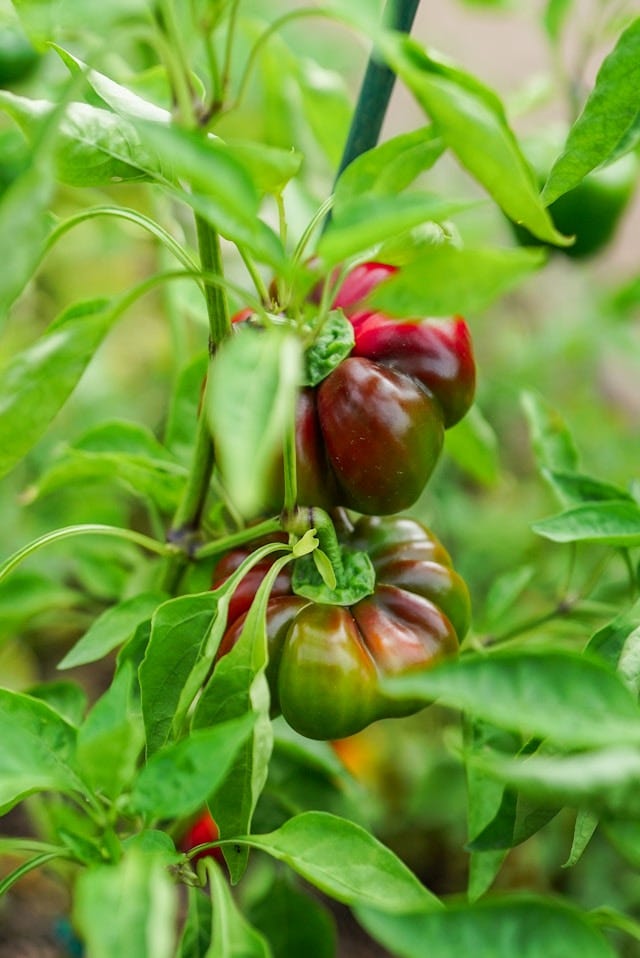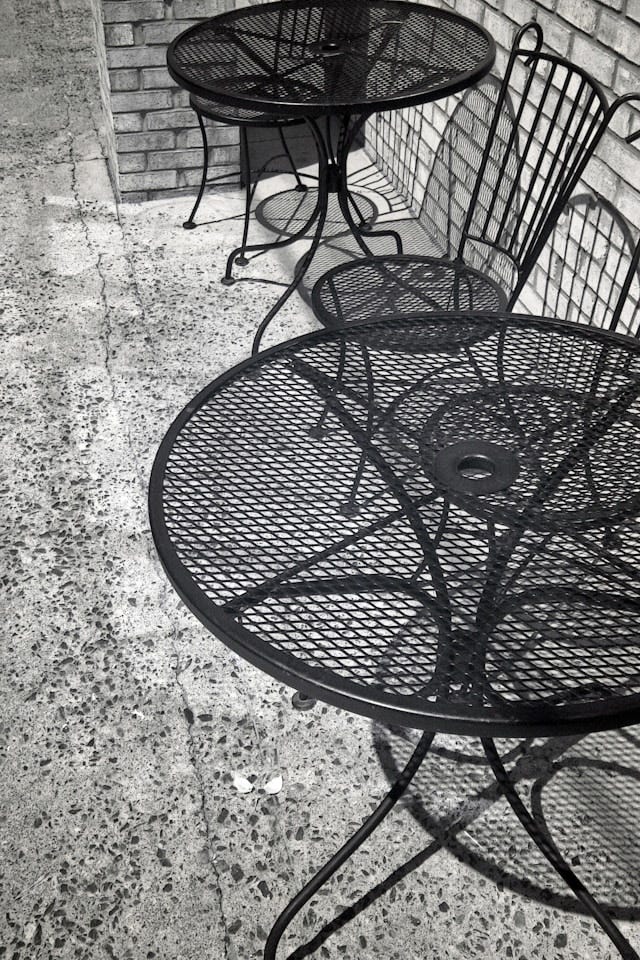I went out into the trees today to listen, and contextualize the human conversations I’d had earlier in the day through the cloud. The wind translated whispers carried from around the world, and urged me to continue reflecting on the line between resonant and performative authenticity.
It’s so incredibly energizing to find like minded people who see the forest and the trees, and recognize the roots all intertwine in the same soil.
A reminder that I will be going live on Friday, 11.07.2025, at 10am EST.
Join me on the weekly Cultivar Coffee chat to talk about the intersections and relationships between life and leadership, individuals and systems!

Authenticity is relational, we’ve discussed that before. But just as important to know that we understand our Self in relation to Ecosystem, is that we learn to understand how we are in relation. It can be quite easy to misconstrue what is urging us forward.
When I asked you the other week “If your Agency was a creature, how would you nurture it?” I posed the question from an assumption of care towards a creature. Not of ownership, or mastery.
Yet many of our automatic worldviews are one of hierarchy. We own pets. We raise animals for food. We conserve endangered species. There are positive and negative aspects to all these scenarios, but since there are different perspectives on humanity’s role and position in the global ecosystem, I must tweak and expand the question:
If your Agency was a creature, would you care for it? Would you tend its wounds, feed it what it specifically required to be healthy? Would you take it for medical care if necessary?
In raising it, would you shape its behavior through fear, or reward?
Would you attempt to reason with it, or correct harshly it to see desired outcomes?
These questions reflect the interwoven understanding of self that threads between personal, organizational, and systemic ecosystems. And at the heart of it all is authenticity.
If we are being authentic, not “our authentic self”, but authentic, then we are engaging with others in an organic manner, a sustainable manner. One that is natural, and not forced.
Allow me to tell you a story about tomatoes.
The Kinship of Hope
Chef is known, for a dish made of tomatoes. They understand everything about it’s potential; it’s depth of flavor, and the myriad ways it can be accompanied by other ingredients. People come from all over to try the chef’s tomato dishes, and the praise flows endlessly.
But Chef simultaneously craves and hates this attention. Chef is searching for a feeling of wholeness, something not held within since they were little. The tomatoes back then tasted fuller, looked less perfect but more real, and smelled of the safety of their grandma’s garden.
Chef hasn’t returned to that place in many years. In fact other pressures of life informed the decision to stay away. But in absence, a hollow ache grew.
Desperate to reclaim themselves through claiming space in a world where all the tomatoes could be prepared by anyone else in the same manner, Chef became known for their unique, authentic and innovative dishes that no one else could have come up with.
Critics and patrons alike knew when they were eating something made by this chef, and the competition could never come close to replicating their dishes.
But accolade only fosters comfort, and repetition. It does not offer the same meaning found in belonging or kinship.
Chef was fortunate enough to get to a point where they could identify this void, recognize all their actions were in search of something intangible, and that what felt authentic to others was but a reflection of what they themselves wanted to feel.
And so, with the privilege of time and perspective, Chef returned to that patch of earth, Grandma’s garden, now overgrow and wild. Rusted fence poles and thick weeds back dropped a teeming multitude of insects and small critters they didn’t remember seeing before.
Grandma appeared only in the minds eye, and yet her presence was felt amidst the smell of boxwood hedges and late summer song of cicadas, urging chef to tend to the plot as they once had. An act of remembrance over responsibility.
Fingers grasping at roots, eyes tracing the path of vines through wire, Chef felt whole once again, though it was tinged with the bittersweet flavor one finds biting into a barely ripe tomato.
As that thought hit them, a pop of red appeared through the undergrowth. Reaching past spiderweb and honeybee, Chef’s hand gently closed around the gnarled form of an heirloom. A gift passed on yet forgotten, stewarded by wild spirits until reclaimed.
What fortune! This simple, imperfect looking thing, full of flavor and life, was the last of the season, almost subsumed by what Chef had tried to ignore. The smile that only comes with grounded kinship spread across their face.
Now they could share themselves with the world. It wasn’t that they hadn’t been their authentic self, they had been an incomplete self, because they had severed themselves from what connected them to the food in the first place. It was Grandma’s tomatoes that had been missing, and with the flavor unique to those plants, Chef could offer their full authentic self.
Meaning, not value.
Reciprocity, not transaction.

With these seeds and newfound purpose, Chef went back to their restaurant, and on the back patio put a raised bed with the best soil to be found, planted tomatoes, and tended them ever so carefully, ensuring the flavor inside remained the same. To their most favored customers, Chef would even give seeds and clippings for them to propagate on their won.
But one season, the tomatoes on the patio didn’t produce they way they should have. The collective shape had begun to conform to a more round sensibility, and while there were more than before, it took longer to come to ripeness. Chef , concerned about their ability to provide their customers with an authentic dish, rushed to do soil tests, and get rid of all the weeds. Answers came, but nothing that explained the diminishing depth, or slow growth.
Desperate to hold onto their self-assurance, Chef did something Grandma never had. They put fertilizer in the soil. Surely just a bit of encouragement, a short burst to cut through the stagnation was all that was needed? If they didn’t have these tomatoes, who were they?
The tomatoes grew fast indeed then, faster than Chef had ever seen. They grew so fast, that the stems of the plant were not strong enough to support the tomatoes, and so they snapped.
Plant after plant collapsed on the weight of its own growth, its own unnaturally empowered success, nightshade skin rotting of of the fruit laying in the box of dirt.
Chef had asked too much of the plant, Chef knew the authenticity of their food came from this tomato, and the joy of sharing it with others. What had happened?
Despondent and without answer, Chef felt hollow once again. This didn’t go unnoticed, and soon it was figured out by the community built up around the restaurant.
Chef had found meaning through certainty, but that certainty was a lie. And in that realization, alone in a wrought iron chair next to a manicured plot of tomatoes, Chef had no idea how to move forward.
Their hand once again reached toward a pop of red, this one interwined with green and brown, but this time crushed the fruit between their fingers, seed and juice flowing across their skin matching the tears they could no longer hold back, as Grandma’s presence no longer accompanied them nor provided answers. This patio was not her landscape to advise on.

Yet, a familiar presence came to rest on their shoulder. The sous chef, who came on board six months after opening, and a constant anchor through the years. A food critic quietly appeared in the doorway to the patio, one who had declared Chef’s food the only tomato dish this side of the city worth subjecting themself to, came and sat across from them.
Then someone Chef had never seen before, a child, appeared in the gateway to the patio from the apartment complex next door. They held in their hand a beautifully imperfect red glob that looked just like the one Chef had found in the garden.
The child explained that they wanted to thank this restaurant for planting tomatoes, because some of the seeds had made their way across the fence in years past, and sprouted up in the cracks of cement near the edge of the parking lot where this one played.
They had only ever read about gardening, and never like tomatoes from the store because they were just like everything else; they looked good but tasted like nothing.
But this kid could pretend to be a farmer in a far off land, and hearing the noise every day from the restaurant urged them to try this tomato, because, if this misshapen thing could make so many people happy day after day, it had to be good. And it was!But only the tomatoes from this patch.
As Chef wiped the tears from their eyes, a strange sensation filled their being. It wasn’t grief, it wasn’t joy. Surrounded by those they had connected with, intentionally or otherwise, a sense of enough, of belonging bloomed. Of seeing, and being seen. Of not needing to perform, but provide. Memory and meaning are funny things in how they relate to one another.
Chef never again used fertilizer on plants, nor manicured the beds look unwild. They let them grow as they would, and used them when it was time. They started an urban gardening project for the local youth, and branched out beyond tomatoes.
It had never been about the tomato itself, nor the garden they were originally grown in, though that land always held the memory of a nurturing matriarch tending to it. It was about the kinship and community held together by shared feelings; of hope, care, and authenticity.
The search to connect with others in the same breath as ourselves will never be over; push too hard to one or the other, and it risks becoming an inauthentic and comparative understanding of who we are. Find what fosters wholeness and meaning in yourself, and find the cracks in others that allow you to plant a seed they can cultivate themselves.
Until next time,
- Chris
Welcome, and thank you for your presence!
I am a leadership ecologist rooted in Appalachia, raised through environmental respect, military service and Western educational institutions. I use an animistic lens to better understand the relationship between individuals, organizations, and systems.
When working with leaders and organizations, my approach not one of doctrine, but of guidance and tending to: to memory, to culture, to systems and people. I believe leadership is not a fixed role, but a living, relational practice.
My work draws from my lived experience and research into myth-making, insurgency and business strategies, regenerative philosophies, creative works, the landscape I inhabit, and the mundane, because the ember of humanity is often nurtured in and between those spaces.
If something resonates, leave a comment, or reach out to chat - I always love hearing people’s stories.
You are always welcome to book a free call to either get fresh perspective or see if we’d work well together in cultivating your capacity to lead.
I offer a variety of services, 1:1 coaching, group programs, leadership training development, and culture consultation.



